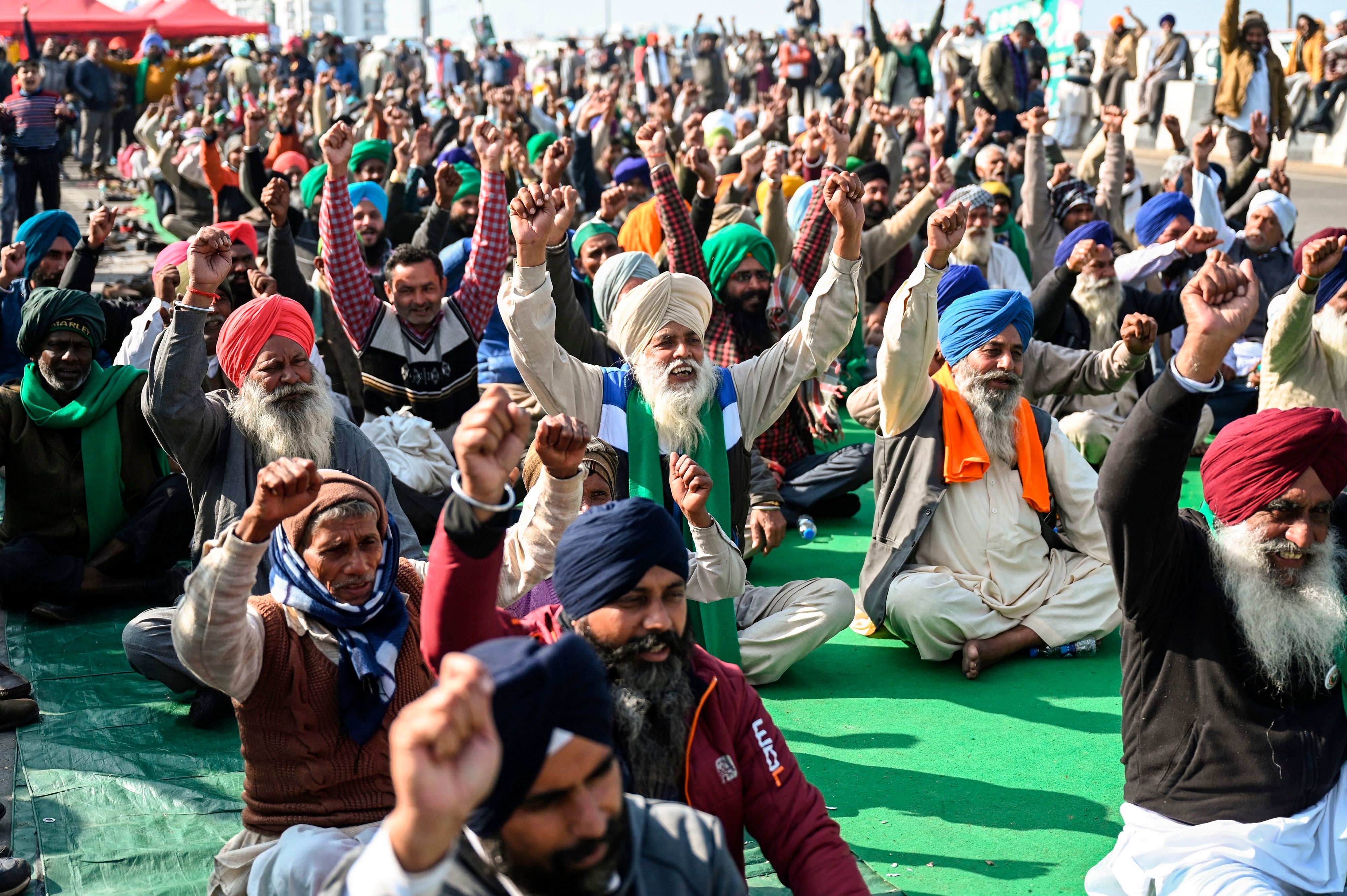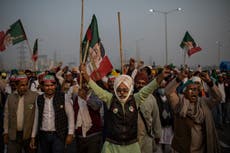Indian farmer kills himself outside Delhi as Supreme Court urges government to delay controversial law
Over 65 farmers have lost their lives since the protests against the controversial reforms of farm laws began

Another farmer has killed himself at a protest camp outside the Indian capital amid the ongoing deadlock with the Modi administration, as the country's Supreme Court suggested the government halt the implementation of controversial agricultural reforms.
A 40-year-old farmer from Punjab who joined the sit-in demonstration at the Singhu border between Delhi and neighbouring Haryana state – an area which has become the epicentre of the huge protest – consumed a poisonous substance on Saturday evening. He was rushed to a nearby hospital where he died, the police said.
According to a rights group, at least 65 farmers have been killed since thousands from rural states of north India marched on the capital, urging the Narendra Modi-led federal government to reconsider new laws that will open up the agricultural sector to private market forces.
The Supreme Court has been hearing a number of related petitions over the contentious laws, and on Monday criticised the government for pushing ahead with the reforms despite the intractable and increasingly deadly protests.
“Some people have committed suicide, old people and women are a part of the agitation. What is happening?” the judges said.
Threatening to issue an order halting the laws, the three-judge bench led by the Chief Justice of India told the government: “You have to tell us whether you stay the farm acts or we do it.”
Eight rounds of discussions have taken place between representatives of the thousands of farmers protesting on the outskirts of Delhi and the federal government, without any conclusion. Protesters have threatened to intensify their efforts on the country's Republic Day, 26 January, which is normally marked with a large military parade in Delhi. Farmer leaders say they will stage a rival farmers’ parade in the capital and across the country.
The protests have steadily grown since the farm laws was voted through parliament in September amid strong protests from opposition parties, culminating in the month-long sit-in at the Singhu border.
The government insists the three laws will benefit farmers, removing the system of local middlemen and allowing them to sell their produce anywhere in the country. Farmer groups say they are concerned that the changes favour large corporations and will deprive them of the fixed-price protections provided by the existing government-run mandis (markets).
Join our commenting forum
Join thought-provoking conversations, follow other Independent readers and see their replies
Comments


Bookmark popover
Removed from bookmarks